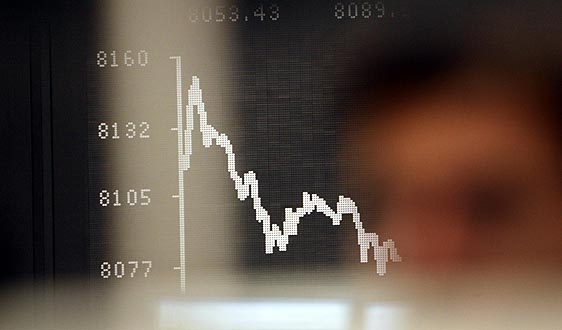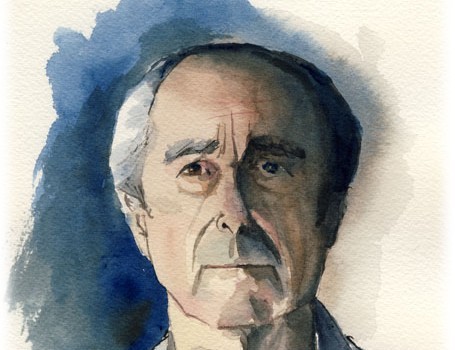The Crisis of Crisis
Crisis de la crisis
Yvon Grenier
Crisis means a turning point, one that is typically unexpected in its manifestation or its intensity, and for which the affected population and its leaders are ill prepared. Think of the Great Depression, for instance. Since then, governments have learned to cope with economic downturn, essentially by increasing public spending. We have experienced numerous recessions since, without ever being visited by similar devastation in the economy and the fabric of society. In 2009, the Obama administration pushed through the 111th Congress a $787 billion stimulus package (The American Recovery and Reinvestment Act), equivalent to about 4% of America’s GDP (Franklin Delano Roosevelt’s New Deal represented about 1.5% of GDP). Today the recovery is tepid and unemployment is still high in the US, but again, compared to the Great Depression the current economic “crisis” is literally manageable. Furthermore, for all the squabbling among politicians and experts about the causes of, and solution to, the current global recession, they use the same language and seem to agree on the fundamentals. China’s “scientific response,” to use Premier Wen Jiabao’s expression, is well within the range of policy options adopted in North America and Europe: essentially, it is all Keynes and no Marx. Recessions are more global than ever, but so is the response by heads of state and central banks.
Crises are not what they used to be
There is a broader proposition to be drawn from this example. Perhaps because politics is short-term, we fail to notice that our postwar national and global institutions have become quite agile at dealing with crisis. They have not eliminated the possibility of crisis, but we have significantly improved our capacity to anticipate and manage them. Take the crisis in the Eurozone. After months of apparent paralysis, what The Economist called “Europe’s notoriously incremental policymaking machinery” delivered an announcement by Europe Central Bank that it would “buy unlimited amounts of the bonds of troubled euro-zone countries,” drawing from a new European Stability Mechanism worth 500 billion Euros. Europe is slowly heading in the direction of a banking union and perhaps even federalism. Dire scenarios are still possible but not very likely. Economists who fear the inflationary consequence of a stimulus package talk about 4% of inflation at worst –nothing like the hyperinflation that brought the Weimar republic to its knees (in the neighborhood of 140%).
The point here is not to minimize the seriousness of the financial situation in Europe, but to remember that this crisis is not nearly as serious as the political crisis for the resolution of which the European community was created in the first place. Clearly the postwar (and postmaterialist) generations are “free from fear” of the kind of economic devastation and material insecurity that visited preceding ones.
Interestingly, the “crisis” is not what it used to be in other areas as well. Consider the case of global conflicts and security. As Steven Pinker argued in his recent book The Better Angels of Our Nature (2011), the world has never been so peaceful. As he puts it, zero is the number of “interstate wars that has been fought since 1945 between major developed countries.” Zero is the “number of developed countries that have expanded their territory since the late 1940s by conquering another country” and zero is the number of “internationally recognized states since WWII that have gone out of existence through conquest.” One is almost tempted to give some of the credit to the much-maligned United Nations! According to the World Bank’s World Development Report, the annual number of battle deaths from civil war “fell from more than 160,000 a year in the 1980s to less than 50,000 a year in the 2000s.” To be sure, “one in four people on the planet, more than 1.5 billion, live in fragile and conflict-affected states or in countries with very high levels of criminal violence,” but in most cases they are victims of recurring civil wars. “Every civil war that began since 2003 was a resumption of a previous civil war. […] …90 percent of conflicts initiated in the 21st century were in countries that had already had a civil war.” Not much there to celebrate, except to highlight the fact that there are fewer and fewer new wars in the world.
The so-called “Arab Spring,” which started in December of 2010, seems to contradict my hypothesis about our improved hability to handle crisis. But even there, the success of Islamist parties in Tunisia and Egypt has not (yet) caused dramatic shifts in regional alliances. The major Western powers have reacted with caution (as President Obama said: “Egypt is neither our ally nor our enemy”) and with considerable coherence. Think about what most observers would have predicted, only a few years ago, as the likely consequence of a major Arab state being governed by the Muslim Brotherhood, and compare that with the range of interpretations of this event we find today! Syria is unfortunately the victim of what appears to be the policy of choice of the UN and world powers to deal with that crisis: doing as little as possible. By giving war a chance, they minimize their own cost and hope to contain the crisis within the country’s national borders. Who said that crisis-management has to be pretty?
We are not nearly as good when dealing with long-term, structural challenges
Which leads to my concluding remark, one that needs no lengthy explanation: while we are better at dealing with crisis, our leaders and institutions are struggling mightily when it comes to long-term, structural problems. Let’s call them “challenges.” No government or international institutions seem capable to deal effectively with social inequalities, the soaring cost of health care, rising public and private debt, climate change, the desuetude of many of our democratic institutions or the long-awaited reform of the UN, to name but a few issues. In our fast-paced world, important challenges like these seem to impart a distinctively numbing effect. What we are confronted with, after the “crisis of crisis,” is the challenge of treating challenges as if they were crises, with the same urgency and dedication.
Traducción de David Medina Portillo
Crisis significa punto de inflexión, habitualmente inesperado en su manifestación e intensidad y para el que la población afectada, lo mismo que sus líderes, están mal preparados. Piénsese en la Gran Depresión, por ejemplo. Desde esas fechas, los gobiernos han aprendido a hacer frente a las crisis económicas, fundamentalmente gracias al aumento del gasto público. Hemos experimentado numerosas recesiones, aunque sin haber sido visitados por una devastación similar en la economía y el tejido social. En 2009, el gobierno de Obama impulsó un paquete de estímulos de $787 mil millones de dólares en el 111o Congreso (The American Recovery and Reinvestment Act), equivalente al 4 por ciento aproximado del PIB de Estados Unidos (el New Deal de Franklin D. Roosevelt representó cerca del 1,5 por ciento del PIB). Hoy en día, la recuperación es mínima y el desempleo sigue siendo elevado; aunque de nuevo: en comparación con la Gran Depresión, la actual “crisis” económica es literalmente manejable. Por otra parte, pese a las disputas entre los políticos y los expertos acerca de las causas y soluciones para la actual crisis económica mundial, todos utilizan el mismo lenguaje y parecen estar de acuerdo en lo fundamental. La “respuesta científica” de China, para usar la expresión del primer ministro Wen Jiabao, se encuentra dentro de la gama de opciones políticas adoptadas en América del Norte y Europa: en esencia, todo es Keynes y no Marx. Las recesiones son más globales que nunca, pero también la respuesta de los jefes de Estado y los bancos centrales.
Las crisis ya no son las que solían ser
Existe una posibilidad más amplia por extraer de este ejemplo. Quizá porque la política actúa a corto plazo, no nos damos cuenta de que nuestras instituciones nacionales y globales de posguerra se han vuelto muy ágiles a la hora de hacer frente a las crisis. No se ha liquidado su probabilidad pero hemos mejorado significativamente nuestra capacidad de anticiparlas y lidiar con ellas. Veamos la crisis en la zona euro. Después de meses de parálisis aparente, que The Economist cabeceó “La conspicuidad europea incrementa la maquinaria normativa”, se emitió un anuncio por el que el Banco Central Europeo “compraría cantidades ilimitadas de bonos de riesgo en los países de la euro zona”, boceto de un nuevo Mecanismo de Estabilidad Europeo con valor de 500 millones de euros. Paulatinamente, Europa avanza en dirección de una unión bancaria e, incluso, del federalismo. Los escenarios horribles son potenciales, pero no muy probables. Los economistas que temen las consecuencias inflacionarias de ese paquete de estímulos hablan de alrededor del 4 por ciento de inflación en el peor de los casos –nada parecido a la hiperinflación que puso a la república de Weimar de rodillas: al rededor de un 140 por ciento.
No se trata de minimizar la gravedad de la situación financiera europea, pero hay que recordar que ésta no es tan grave como la crisis política por la que se decidió crear la Comunidad Europea. Francamente, las generaciones de posguerra (y posmaterialistas) están “libres de miedo”, a salvo del tipo de devastación económica e inseguridad material que conocieron sus antecesoras.
Curiosamente, tampoco en otras áreas las “crisis” son lo que solía ser. Consideremos los conflictos y la seguridad mundiales. Como Steven Pinker afirma en su reciente The Better Angels of Our Nature (2011), el mundo jamás había sido tan pacífico. Es nulo el número de “guerras entre los principales países desarrollados desde 1945”. Ninguna de esas “naciones desarrolladas ha ampliado su territorio mediante la conquista de otra desde finales de 1940” y, en consecuencia, tampoco existen “Estados internacionalmente reconocidos tras la Segunda Guerra Mundial que hayan desaparecido por su conquista.” ¡Uno está tentado a dar cierto crédito a las vilipendiadas Naciones Unidas! De acuerdo con el World Bank’s World Development Report, la cifra anual de muertes en batalla durante una guerra civil “pasó de más de 160.000 por año en la década de 1980 a menos del 50.000 anuales en la década de 2000.” Sin duda, “una de cada cuatro personas en el planeta –más de 1,5 millones– viven en Estados frágiles y asediados por conflictos o en países con altos niveles de violencia criminal”, pero en la mayoría de los casos son víctimas de guerras civiles recurrentes. “Al promediar el 2003 cada guerra civil fue la reanudación de una anterior. […] El 90 por ciento de los conflictos desatados en el siglo XXI ocurrieron en países que ya habían vivido una guerra civil.” No hay mucho que celebrar, excepto que cada vez son menos las nuevas guerras en el mundo.
La llamada “Primavera Árabe”, que comenzó en diciembre de 2010, parece contradecir mi hipótesis acerca de nuestra optimizada habilidad para manejar una crisis. Pero incluso allí, el éxito de los partidos islamistas en Túnez y Egipto no ha traído (aún) consecuencias dramáticas que afecten las alianzas regionales. Las principales potencias occidentales han reaccionado con cautela y notable coherencia (el presidente Obama dijo: “Egipto no es nuestro aliado ni nuestro enemigo”). Considérese lo que, sólo unos cuantos años atrás, la mayoría de los observadores habían pronosticado como consecuencia de un probable e importante Estado árabe gobernado por la Hermandad Musulmana, ¡y comparémoslo con la gama de interpretaciones de tal acontecimiento hoy! Por desgracia, Siria es la víctima de lo que parece ser la política elegida por la ONU y los poderes del mundo al lidiar con esa crisis: hacer tan poco como sea posible. Al dar a la guerra una oportunidad (give peace a chance), minimizan su propio costo con la esperanza de mantener el conflicto dentro de las fronteras de aquel país. ¿Quién dijo que el manejo de la crisis era agradable?
No somos tan eficaces a largo plazo. Los desafíos estructurales
Esto me lleva a un comentario final, con el que no necesitamos de una larga explicación: si fuéramos mejores en el manejo de las crisis, nuestros líderes e instituciones deberían estar luchando denodadamente cuando se trata de problemas estructurales a largo plazo. Vamos a llamarlos “desafíos”. Ningún gobierno o instituciones internacionales parecen capaces de afrontar con eficacia las desigualdades sociales, los crecientes costos de salud, el aumento de la deuda pública y privada, el cambio climático, lo obsoleto de muchas de nuestras instituciones democráticas o la esperada reforma de la ONU, etc. En nuestro mundo vertiginoso, los retos importantes parecen provocarnos un efecto de tipo anestésico. Y a lo que nos enfrentamos, tras la “crisis de la crisis”, es al desafío de tratar los problemas como si fueran una crisis, es decir, con idéntica urgencia y dedicación.











Creo que la palabra clave es cautela. Las “crisis” no son lo que solía ser, pero eso se debe a como el mismo Grenier menciona a que existe más cautela, cuidado, experiencia y se aprende del pasado.
Good post, I´ve always liked Yvon Grenier.